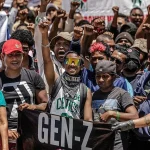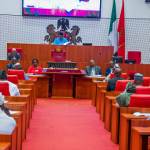By Kabir Abdulrauf
Across Nigeria’s capital city, Abuja, the sight of cattle roaming highways has become disturbingly familiar. From the airport road to Asokoro and even parts of Gwarinpa, herders and their animals move freely, often clashing with motorists and residents.
In recent months, several road accidents and security breaches have been linked to open grazing, yet government workers, the very people who implement policies, remain silent on the matter.
When approached for comment during a recent survey on open grazing, many civil servants declined to speak with reasons that it is “against the civil service rule” to comment on national or political issues.
One civil servant at the Federal Secretariat put it plainly: “We’re not allowed to speak to the media about such matters unless they directly affect our work. It’s in the rules.”
Under Nigeria’s Civil Service Code, public officers are barred from making public statements or granting interviews on national issues without official clearance. The rule is meant to preserve neutrality and loyalty to the government of the day, but in practice, it also stifles voices that could enrich public debate and promote accountability.
Constitutionally, every Nigerian has the right to freedom of expression. Civil servants are citizens first, and their insights often come from firsthand experience, the kind that could help shape better policies. Yet, their silence has become institutional.
The issue of open grazing goes far beyond politics. It is about safety, food security, and peaceful coexistence. The failure of successive governments to provide grazing reserves or establish ranches has left herders wandering into highways and farmlands, leading to conflicts, destruction, and deaths. In Abuja and other urban areas, residents have grown increasingly frustrated as their safety and property are threatened.
Many say the lack of open dialogue, especially among those within the system makes it harder to find lasting solutions.
The silence of civil servants reflects a deeper challenge in Nigeria’s democracy, a fear of speaking truth to power, even when lives are at stake. While discipline and neutrality are essential for the civil service, there must also be room for honest expression on issues that affect public welfare and national security.
As open grazing continues to cause fatalities, Nigeria must decide: will it continue to silence those who know best, or will it open the floor for all citizens, including its civil servants to contribute to the conversation that shapes their nation’s future?
Because silence, in this case, is not neutrality, it is complicity.







